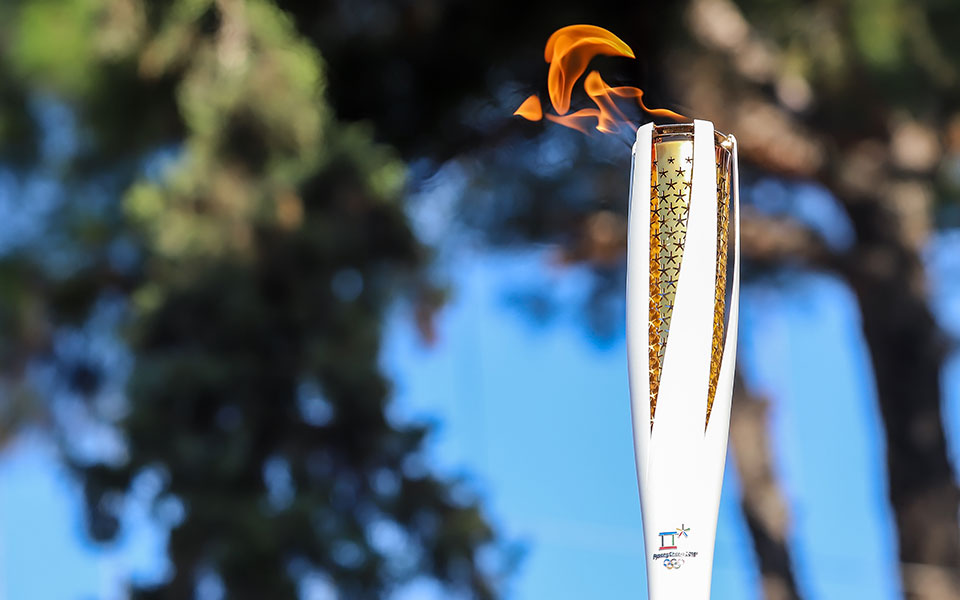The 2018 Winter Olympics are scheduled to take place this month (February 9-25) in PyeongChang County, South Korea. Commonly referred to as the “PyeongChang Games,” this will be the first time that South Korea has hosted the Winter Olympics; Seoul hosted the Summer Games in 1988.
It is interesting to note that in order to avoid any potential confusion with North Korea’s capital, Pyongyang, the PyeongChang resort — which is only about 50 miles south of the demilitarized zone separating the two countries — has changed its name for the Games by capitalizing the “C.”
More importantly, the rival North and South Koreas agreed on January 17, 2018, to form their first Olympic team and have their athletes parade together under a “unification flag” during the opening ceremony.
This development is especially significant since it follows a year of heightened tensions over the North’s nuclear weapons program. The concerns of critics notwithstanding, the move has provided a temporary thaw in the Koreas’ long-strained ties and has fostered optimism that North Korea won’t launch any new provocations, at least during the Olympics.
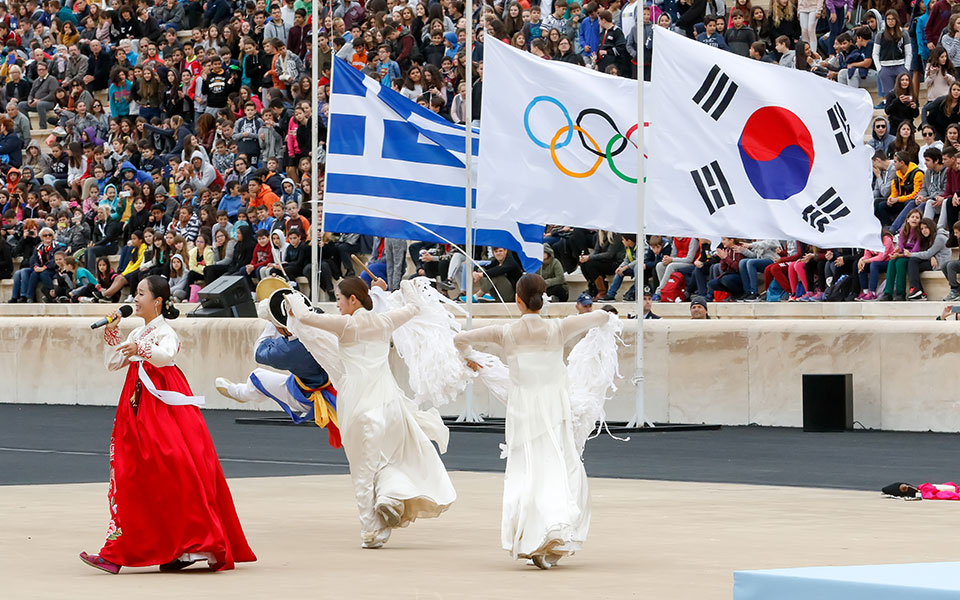
© Shutterstock
The shift in mood and consciousness, which is consistent with the Olympic spirit and principles described below, began after North Korean leader Kim Jong-un said in a New Year’s Day speech that he was willing to send a delegation to the PyeongChang Games. It was followed on January 20th by an “Olympic Korean Peninsula Declaration” from the International Olympic Committee (IOC) at its meeting in Lausanne, Switzerland.
At this meeting, IOC President Thomas Bach emphasized that the Committee’s decisions were made in the Olympic spirit:
The Olympic spirit is about respect, dialogue, and understanding. The Olympic Winter Games PyeongChang 2018 are hopefully opening the door to a brighter future on the Korean peninsula, and inviting the world to join in a celebration of hope. The Olympic Games show us what the world could look like, if we were all guided by the Olympic spirit of respect and understanding. This is the Olympic message that will go from PyeongChang to the world.
It is expected that millions of people from around the world will have watched at least part of the PyeongChang Games before the XXIII Winter Olympics come to a close. And in light of the state of the world at this very time, and in particular the meaningful milestone happening on the Korean peninsula, it is both fitting and instructive to view the Olympic Games from a historical perspective by reflecting upon the original meaning of the Olympics in Ancient Greece, their birthplace, as well as by reminding ourselves of the original intent of the first, so-called “modern” Olympic Games.
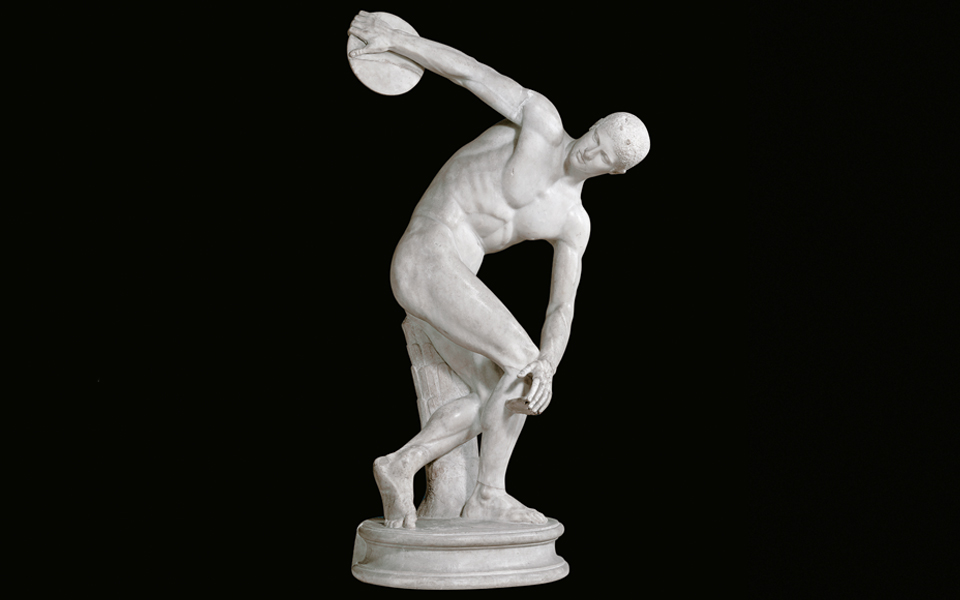
© National Archaeological Museum, Athens/S. Mavromatis/Hellenic Ministry of Culture and Sports/Archaeological Receipts Fund
Ancient Olympic Games
Although the first recorded Olympic Games were held in the Village of Olympia, Greece, in 776 B.C., it is not certain that these Games were the first ones to be held. Historians and archaeologists, while not totally in agreement, believe that the Games were first held between 1370 and 884 B.C. The origin of the Games is also unclear, and there are several competing legends; however, we do know that the Games take their name from Olympia, a sanctuary site for the Greek gods.
The Sanctuary of Zeus in Olympia housed a 12-meter-high statue in ivory and gold of Zeus, the father of the Greek gods. This statue was one of the ancient Seven Wonders of the World. The first Olympic Games, it is important to note, were regilious festivals held near the shrine of the god in whose honor they were instituted. They were also held in honor of deceased heroes (a concept displayed in the funeral games for Patroklos in Book 23 of Homer’s epic poem, The Iliad).
The Olympic Games were also held in the context of many ancient fertility festivals involving any number of gods and goddesses who were worshipped at the sacred site of Olympia. These festivals, which were held every four years, became so vitally important in Greek life that they were used as the basis for the Greek calendar in which the term “Olympiad” was used to refer to the period between two Olympic Games.
Sport and athletics were of prime importance to the ancient Greeks, and most cities in ancient Greece had public gymnasiums, where people gathered to train and, interestingly, to relax. The Greeks also believed that a healthy body was essential, and that it naturally accompanied a fit mind and a healthy life. Sport, of course, was viewed also as good preparation for war, since the Greek armies had to be fit enough to march long distances, carrying all their heavy equipment, and then begin the fight with the enemy.
The ancient Greeks, moreover, were highly competitive and believed strongly in the concept of agon: “competition” or “contest.” The ultimate Greek goal was to be the best. All aspects of life, especially sport and athletics, were centered around this concept. It was therefore considered one of the greatest honors to win a victory at Olympia. The fact that the only prize given at the Greek Olympic Games was an olive wreath illustrates this point. In other words, Olympic athletes competed for honor, not for material goods.
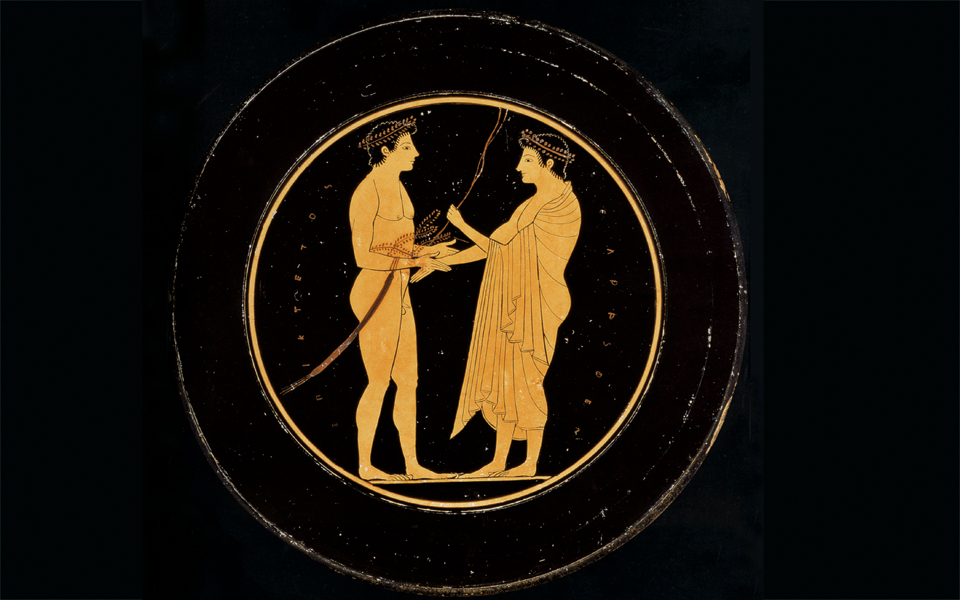
© Games and Sanctuaries in Ancient Greece/ Courtesy of Kapon Editions
From the beginning, the games at Olympia served to strengthen the Greek sense of national unity and pride. Huge crowds would gather for the Games, and some of the distinguished guests included Plato and Socrates. The tremendous physiques and abilities of the competitors aroused the imaginations and creative talents of artists, poets, sculptors, and writers. When the Games eventually lost their underlying religious significance around 420 B.C., they became a wonderful celebration of athleticism and the arts, which is how we still view them today.
Even though the ancient Olympic Games were fiercely competitive, their peaceful nature was always a distinguishing characteristic that made them unique. In this regard, one of the more extraordinary stories about ancient Greece is that during the Olympic Games, all fighting stopped. In other words, the athletes, who were often soldiers, were permitted to leave the military to participate in the Games and were guaranteed safe passage through enemy territory.
No matter how long or how fierce a battle had raged, for seven days before and seven days after the Olympic Games (and, of course, for the period of the Games themselves), no fighting was allowed. Indeed, it was considered disrespectful to the gods to engage in conflict during this period!
Against this backdrop, consider this time in history. Wouldn’t it be great if all fighting around the world, including acts of terrorism, stopped even for such a short period during the PyeongChang Games?
There are several reasons why the ancient Greeks espoused and practiced this fascinating policy in regards to the Olympic Games. First and foremost, the Greeks, as noted above, viewed the Olympic Games as a religious festival. It was therefore their duty to attend and/or participate in the Games, and duty to the gods was more important than duty to their city-states, which were fighting the wars in the first place.
Second, many of the best athletes were also soldiers whose commanders did not want them to leave the fighting. With a truce in place and the fighting halted, these soldier-athletes were free to compete in the Games and then return to the fighting when the Games had finished.
Third, some of the best athletes were not skilled fighters and were not even part of the military. Since war was so much a part of life in ancient Greece, victorious soldiers came to be heroes for their city-states and role models for the youth. Having the Olympic Games and showcasing the athletic talents of men (women had not yet become participants) who were not soldiers allowed city-states to celebrate heroes and role models who might not be the best fighters.
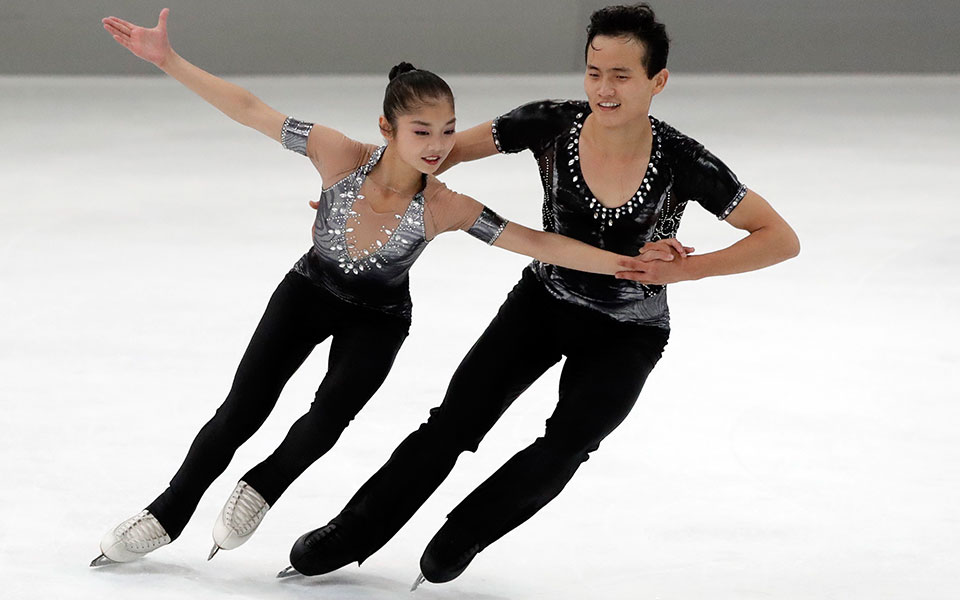
© AP Photo/Matthias Schrader
Modern Olympic Games
The Olympic Games, as reported, were held every four years from 776 B.C. to 393 A.D., when they were abolished by the Christian Byzantine Emperor Theodosius I. They then lay dormant for roughly 1,500 years. It wasn’t until the late 19th century (A.D.) that the so-called “modern” Olympic movement began. And it was a French aristocrat by the name of Pierre de Frédy, the Baron de Coubertin, who, fortunately for the world, founded this movement.
Influenced by the events of the late 19th century and his education, Coubertin developed a passionate belief that sport and athletic competition possessed the power to benefit humankind and encourage peace among the nations of the world. When he was just 17 years old, Coubertin began to think about the weaknesses of the French people, who were trying to recover hope and self-respect following the Franco-Prussian War.
He believed the solution was helping to develop character in each individual. He saw that competing for a place on an athletic team developed qualities of character, which was the opposite of what the French schools at that time believed — they thought that games destroyed study. He was convinced that he should devote his entire time and energy to changing these ideas in France. He decided to start at the bottom, because he believed that the foundation of real human morality lies in mutual respect, and to respect one another, it is necessary to know one another.
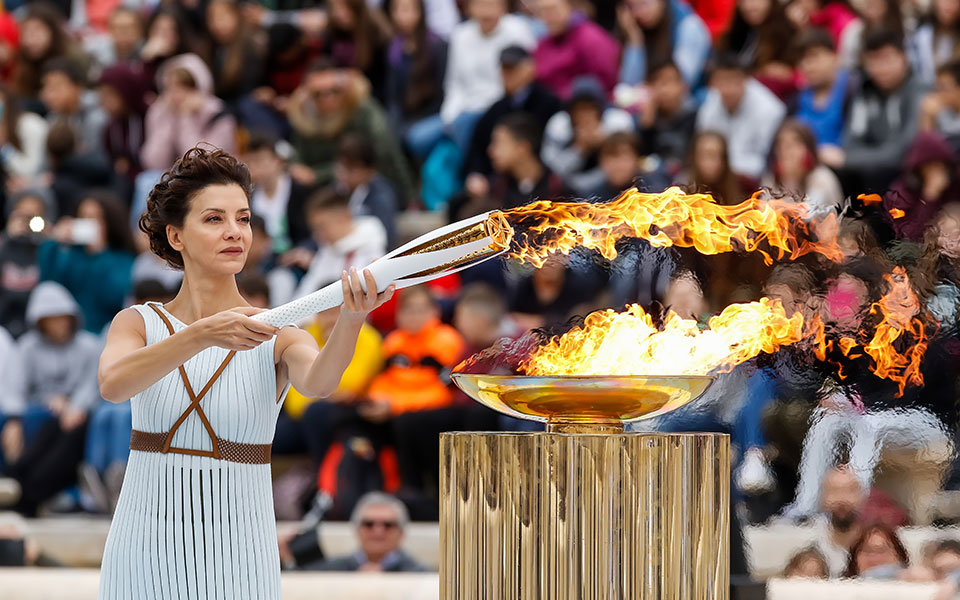
© Shutterstock
Coubertin, of course, drew his inspiration from the ancient Olympic Games. Like the Greeks before him, his vision and determination, fueled by his authentic commitment to the ideals of “Olympism,” a true manifestation of the will to meaning, created a movement that, like no other, united athletes and nations of the world in peaceful celebration and competition. It was 1894 when Coubertin was finally able to rekindle the ancient Olympic spirit and found the International Olympic Committee (IOC).
Two years later, the IOC gave birth to the modern Olympic Games by awarding Greece the opportunity to celebrate the first modern Olympiad with the 1896 Athens Games. And to this day the procession of nations marching in the opening ceremony of each and every Olympic Games, both Summer and Winter, gives Greece, the birthplace of the Olympic Games, its traditional place at the start.
We have the Baron Pierre de Coubertin to thank for bringing back the ideals of Olympism and for giving us the chance to experience one of the most universally recognized events and symbols of peace in the world. Against this backdrop, let us not forget the following fundamental principles in the Olympic Charter as we watch the 2018 PyeongChang Winter Olympic Games unfold:
Olympism is a philisophy of life, exalting and combining in a balanced whole the qualities of body, will, and mind. Blending Sport with culture and education, Olympism seeks to create a way of life based on the joy found in effort, the educational value of good example, and respect for universal fundamental ethical principles.
With these meaning-centric principles in mind, let the 2018 PyeongChang Winter Olympic Games begin!
This article first appeared on “Psychology Today Magazine” with the title “Looking Ahead to the Olympic Games”.

